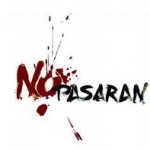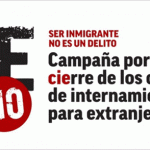
Hanna is five years old. She drew this picture of the happy family she wishes for.
Her mother named her Hanna but her name is nowhere officially recognised; to the German authorities, she is a nameless child. She was born in Cologne, and has always lived there. She knows no other country than Germany but has been considered an undocumented migrant all her life. To read Hanna’s full story, click here.
Hanna’s story is part of PICUM’s series of testimonies and stories of undocumented children and youth. PICUM, in which Pro Igual participates, regularly publishes stories and quotes in written form or through multimedia in the run-up to Universal Children’s day in November. The series aims to give a voice to children and young people as well as to their parents, caregivers and supporting organisations to show the realities undocumented children and youth face across Europe. Testimonies are available in English, French and Spanish and can also be shared through social media. #ShareYourStory

 October 11th, 2016
October 11th, 2016 



